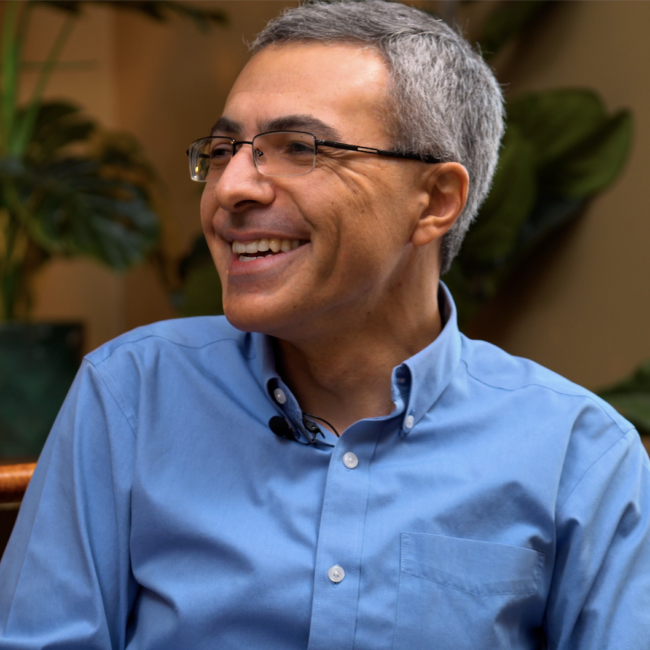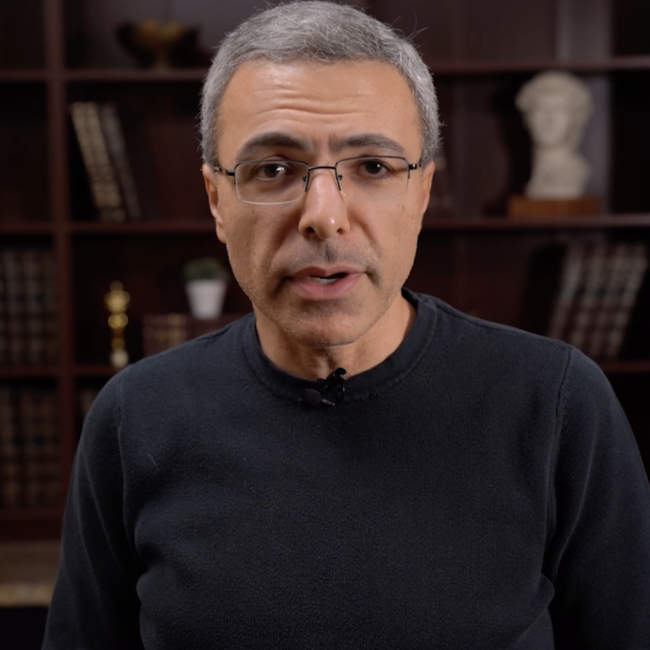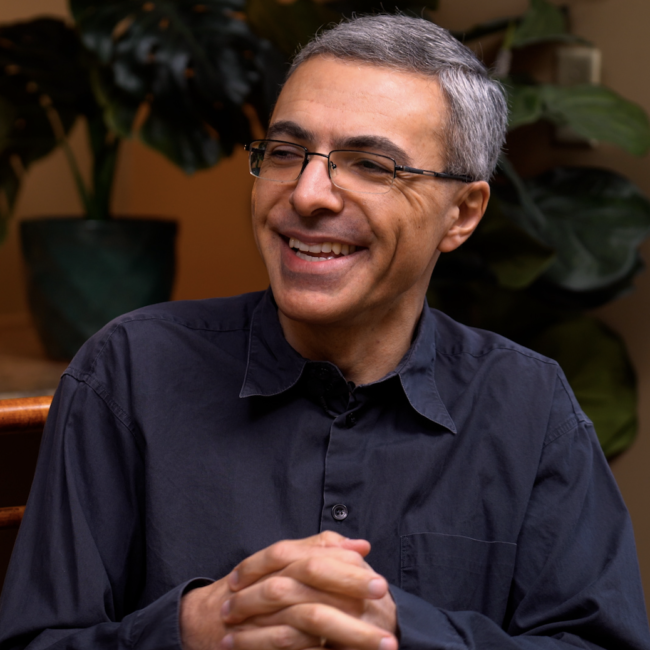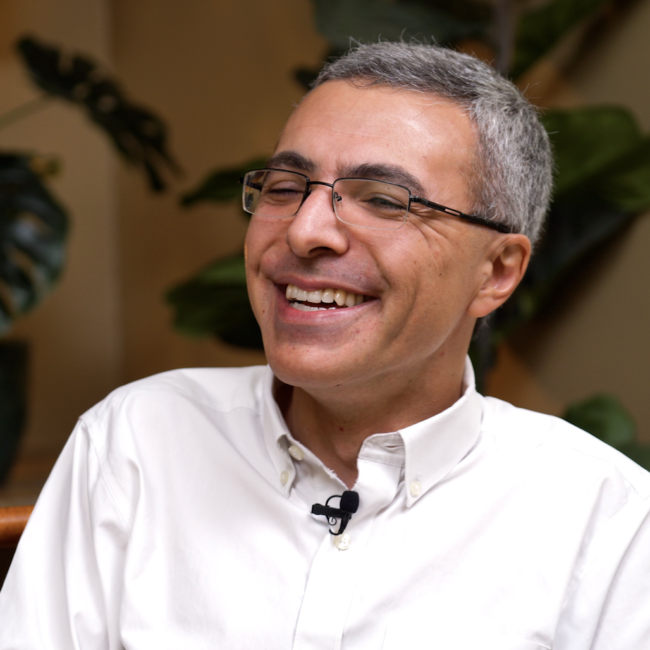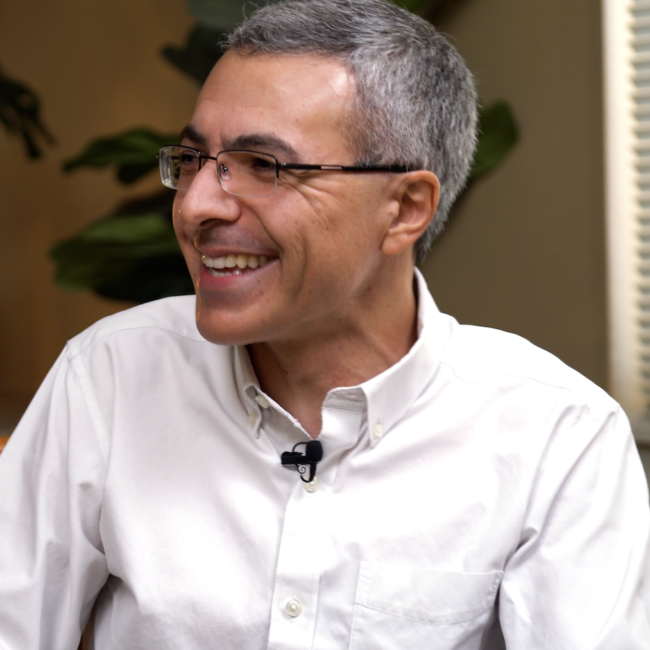
About Episode 4:
Episode Transcript:
Dear Healthcare It’s You: Episode 4
Elisha Yaghmai
So here again, you could take that and say, well, that was just a bad result. Now, this happened too many times with too many different people.Jo O’Hanlon
Right.Elisha Yaghmai
Right. You begin to realize at some point, this is a system issue. Yeah. Right. And the system issue is the American health care system cranks volume because volume makes money. Yeah. And the problem with volume is when I'm cranking as much volume as I possibly can, I can't be as thorough and detailed as I need to be to do good work.Jo O’Hanlon
Welcome back to your health care. It's you. Welcome back to our podcast with Dr. Elijah Hagmaier, the founder of Free State Health Care Clinic in Wichita, Kansas. Elijah, thanks for being here. We were talking last time about your medical journey still and kind of talking about why you are jaded, a bit about the health care industry and why you care to talk about these things and help people be more informed.Jo O’Hanlon
And so we're going through your journey. Where we've left off is that you told us that you started a residency here in Wichita, Kansas, with Kristi, and that after one year of that residency, you changed residency, right? What happened? Why did you change residencies?Elisha Yaghmai
You know, I mentioned, I think last time that the culture was different. And so the irony actually was that to some degree, that culture actually is what led to the change. So the very first thing was that Kristi, at that time we had a news conference basically. So you would you would go in if you were on an inpatient rotation and really anywhere you would go and do whatever you were doing.Elisha Yaghmai
And then we'd have a break for a teaching session.Jo O’Hanlon
That was for all the residents of.Elisha Yaghmai
The hour, or at least certainly presence on the inpatient rotation. I think if everybody came or not, but a lot of people would come.Jo O’Hanlon
Side question, how many how I mean, how many residents would there be a given point in a hospital? So.Elisha Yaghmai
Well, there were. How many were there is 20 a year maybe.Jo O’Hanlon
So that's a pretty sizable.Elisha Yaghmai
Sizable. Yeah. I might be a little off on the numbers, but it's in that ballpark. Yeah. Okay. You know, and people people came to view Kristi from from across the country. So it was a good mix of people from all over. Right. That came in. And I would say that most people who came in had a similar motivation in terms of they were thinking about international health, they had an international fellowship that they started to think that you're actually do they just start?Elisha Yaghmai
They just started the year before I started, actually, if I recall correctly, that was one of the things that really attracted me to it. An international fellowship was being you was, but we would finish your regular family medicine and then you would actually go work internationally. okay. In an underserved setting to gain more skills in that environment.Jo O’Hanlon
That they kind of hook you up with the platform.Elisha Yaghmai
For. Yeah, that's right. So they had they had faculty that had worked in those environments, right. And that had set up a program where you could go over and do firsthand hands on training in those places. So a lot of the people that were coming in had that conversation. So but the the the new conferences of that time were we're taught by a local nephrology doctor, actually.Jo O’Hanlon
What is.Elisha Yaghmai
Nephrology? A kidney kidney specialist. All right. So so he was internal medicine who had done who had done a fellowship in nephrology. Okay, So study of kidney. And he would teach the basically the inpatient teaching session pretty almost every day.Jo O’Hanlon
Every day you would have this.Elisha Yaghmai
Well, at least during the week, right? So Monday through Friday, at least you'd have this conference. Right. And he would come in and teach. And what you would do typically is, is the residents would present a case or two or whatever. Right. And then he would go through and help you break it down. So he'd break it down into how how what did you do?Elisha Yaghmai
Why did you do this? Did you do the right thing for the wrong reason? Did you do the wrong thing for the right reason or the outcome? How else could you have done this right? But the the common denominator in all of it was that this doc really liked medicine.Jo O’Hanlon
Elisha Yaghmai
That's the best way I can describe it. He wasn't there, you know, He wasn't there. Like, in other words, this was not a this was not an academic medical center in that sense, Right? Yeah. He wasn't there because his department had told him he had to be there. Right. You know, he had to do a certain amount of time doing this before he could go off and do what he really want to do.Elisha Yaghmai
Yeah, he just liked teaching and he liked medicine. And that attitude at least for me, was infectious. Yeah, right. Because for the first time, I'm seeing somebody that, like, he just really likes this stuff. Like, you just, you just nerds out on it all the time, right?Jo O’Hanlon
Well, because I imagine there's more like curiosity involved with somebody like that, more compassion or a lot of those kind of human factors that could be easy to sterilize through.Elisha Yaghmai
That was pretty nicely it. So he had retained that. I don't know how he did it, but he retained it through his training and came in just excited. Like it was just interesting. So hearing him break down the case was interesting. And and, you know, even if you did something that was wrong the way he had of of walking you through the point was not you know, you're such an idiot for doing this.Elisha Yaghmai
Right. The point was, okay, you did a thing. It was wrong.Jo O’Hanlon
It was a learning.Elisha Yaghmai
And let's understand why it was wrong, Right? So the next time you don't do it that way. Right. You know what to do to get it right. This was this was the attitude that he approached this with. And that was was excellent. Yeah, that was excellent.Jo O’Hanlon
Sounds like a really refreshing, like classroom setting versus what you've been having.Elisha Yaghmai
Very much. Yeah. It really was. Yes. With that, the result of that was some inspiration to say, you know what, I like this doc and I would like to be like him right In this respect, I would like to be like him. I would like to know my area as well as he does. I would like to be excited about it.Elisha Yaghmai
Right? I'd like to enjoy digging into the details of the, you know, the science behind this. Yeah. And so that, you know, that had a very prominent effect. It had a very prominent effect.Jo O’Hanlon
On just do or do you feel like that was like throughout the class.Elisha Yaghmai
I think it I think it had an effect on many people, but it was variable. Some people responded really well to it. Other people had other priorities or other motivations, whatever it was. Right.Jo O’Hanlon
And your personality type, it sounds like, you know, that's something that you had already identified that you'd been lacking throughout this journey and wanting. Yeah, especially after that family practice for the two weeks, right? You know, that was the taste of freedom. But then now it's like another piece where you're finding some more of the bedside manner that compassion that why.Elisha Yaghmai
Yeah maybe it's that I mean I would describe it if you use athletic terms right It's like finding it's like finding a good coach, right? Presumably you're playing the sport because you like the sport, right? Right. But boy, is it helpful if you can find someone that has been there before you. Yeah. And can help you learn faster, right?Elisha Yaghmai
It can help you gain more skill. Can help you avoid making the mistakes that they have made. Right. That's that's how I would describe it. So that that was a very inspiring experience. It was very inspiring. TIME And the the flip side of that was that I began to dig into my cases more. That's how I would describe them.Elisha Yaghmai
I began to dig in my cases more and I saw a couple of things. One was I realized how sloppy in general the system of health care delivery really was.Jo O’Hanlon
What do you mean by that?Elisha Yaghmai
So I would adjust, like if a patient so what I would I would do, for example, is that when I was on call, I would come on call with at this point, most of these preferences were not digital. So I had a bag of.Jo O’Hanlon
Books, Right.Elisha Yaghmai
Textbook. Yeah. That I brought on every culture.Jo O’Hanlon
We're very.Elisha Yaghmai
Right so. And very heavy. Yes. And, you know, if I got called in on a mission, I would sit down and read the chapter on whatever I thought the condition.Jo O’Hanlon
Was.Elisha Yaghmai
Before I went into the room.Jo O’Hanlon
just from the nurses intake.Elisha Yaghmai
So like, if the E.R. doctor called and said, I have I think I have such a such a case, then I would I would read it. Everything I had in those textbooks, I read it all. If there was an online resource, I'd read that, too.Jo O’Hanlon
Yeah.Elisha Yaghmai
Now, this is thoroughly inefficient, Right?Jo O’Hanlon
Right.Elisha Yaghmai
I guess.Jo O’Hanlon
Which is no wonder it takes so long for doctors to get it right.Elisha Yaghmai
So I read all that stuff. I would go in and see the patient. Yeah. And then I would, of course. And then sometimes what you got from the error wasn't accurate. Right? So then I go into like, okay, I came in here prepared to talk about whatever it was, and this is completely wrong. Right, Right. So now I got to go.Elisha Yaghmai
I got to go learn about this totally different thing.Jo O’Hanlon
That would this be a different day? Like you would see them or this.Elisha Yaghmai
No, no, no, no. This would be so like, let's just say you're on call at night, right? And they call you a patient gets admitted from the hospital, they're brought up. Right? So I would sit there and I would read. Then I would go in after I had read about the thing, I'd go in and talk to them for how long that took.Elisha Yaghmai
And then I would come out and read some more and then I would write their orders. Right. Because there's always an intern. Yeah. And I think I'd mentioned at some point, you know, medicine ultimately, right, is about rapid sequence pattern recognition. You have to build that over time. Well, the problem is that you don't have that right. So how do you build it?Elisha Yaghmai
Because you get fast, because you know things, but you only know things by having learned them and then applied them and then applied them again and then read that algorithm again and then read it again. Right. And then applied it for the 14th time. Right. And then it starts to it starts to imprint on you. Right. You have to go through that process.Elisha Yaghmai
Right.Jo O’Hanlon
And it's different for each type and then.Elisha Yaghmai
Each time, then this one comes in, it's a little variation. So it's like that other one. But then there's this part that's a little bit different, and then you got to figure out, Well, how do I navigate that variation from the theme? Then how do I navigate right? I do it over time. Eventually, you get to the point where you've seen most of the variations most of the time, so you pretty much know what to do, right?Elisha Yaghmai
You still get occasional ones that are off the normal, right? Yeah, but, but you build that. But to do that, you have to you have to build that Right. Which is time consuming. Right. So, so the and this is one interesting part. So the culture in that aspect of the program was very work focused, meaning we want you to get through with stuff as fast as possible.Elisha Yaghmai
All right. And this was in this and I think other programs as well. There was a word that was commonly used, which was efficiency. Yeah, right. So efficiency, what it really meant was speed, right. How fast did you see all your patients and crank out your notes?Jo O’Hanlon
Yeah. Not actual efficiency. Nobody, whether it's well done.Elisha Yaghmai
Exactly. That's exactly right. So real efficiency is you do it fast and well, right.Jo O’Hanlon
Like, how fast can you do it? Well, what.Elisha Yaghmai
About medical training? Efficiency was how fast period, right? Yeah. So this was that was a fundamental problem because I realized at this point, okay, to do this right, I can't do it fast. Right. I don't I don't auto know enough of this stuff. Right. Yeah. To just be able to walk in the room and break down your history if just from talking to you and know exactly what it and I know exactly what your condition is.Elisha Yaghmai
Right. These are all things I can do now more than a decade. But I couldn't do it that time, right? So I had to go through the times. I had to have an interview, they had to ask you questions, and then I'd have to go read about it and then may come back and ask you more questions because I forgot to ask you some questions.Jo O’Hanlon
That patient's still in the room.Elisha Yaghmai
Exactly. Because you're still there. Right. And before you know, I'm writing your orders and then I realize, you know what? To write this order, I need to know. So the piece of information which I forgot to ask, which I didn't even know to ask last time because I wasn't considering this condition. You know, when I went in and talked to them, the history that they gave me was very different than what the E.R. doctor told me.Elisha Yaghmai
Right? So now I really have to change gears completely, which means I need to go actually think about this other condition. And then I need to ask all the sub questions that help me fully lay this out properly. Right. So it was impossible in that context to be fast and good. Yeah, you could be slow and good, but you couldn't be fast and good.Elisha Yaghmai
Yeah, but one of the first things I saw was the culture was fast, fast, fast, fast, fast, fast. The second problem was that, again, to a large degree, inspired by the doctor was teaching us. I began to really dig in to the charts. So this was the beginning of the electronic medical record. From the very, very beginning, they had their own record that they'd had built by a local company, right?Elisha Yaghmai
so the problem for EMR is are terrible for so many reasons. But one of the things that they do do is store information.Jo O’Hanlon
VMware is the.Elisha Yaghmai
Electronic medical record. So what we were doing and this was true for a lot of my residency, was we were handwriting notes, Right, right. You'd handwrite notes. The labs would be in the in a physical chart ready to go flip through the page and put some stuff down and you'd go right, right now.Jo O’Hanlon
And past history would just be whatever is from that hospital.Elisha Yaghmai
Exactly. Whatever you had in hospital, stay whatever the patient could remember. Whatever you happen to know about them is what it was. But this was beginning to change at that time. So the electronic record, for example, had didn't have all the notes necessarily, but it had the data, right. So all the studies, old imaging studies, all labs, sometimes all labs are in there.Elisha Yaghmai
These other things were there. The culture was you come in and talk to me about whatever credit. Great, great, great, great, great, great, great, great, great. Just get it through. Yeah, whatever. Okay. It's right in front of me. Yeah. So I'll give you a good example. There was a case I had where this guy kept getting admitted for low potassium.Elisha Yaghmai
And every single time and I notice because I went and read his entire chart, every single time they would come in, they would say, You have low potassium. They would give him some potassium supplements and they would discharge.Jo O’Hanlon
So what was going on?Elisha Yaghmai
That was the thing right? So what.Jo O’Hanlon
We have.Elisha Yaghmai
Is that question was never being.Jo O’Hanlon
Asked.Elisha Yaghmai
No one was asking, why does this.Jo O’Hanlon
Including the patient?Elisha Yaghmai
Well, the patient said the patient, this particular patient had some psychiatric issues. So he wasn't.Jo O’Hanlon
Able to able to he.Elisha Yaghmai
Wasn't really able to advocate for himself. Right. But he kept coming with a low potassium over and over. And it was just.Jo O’Hanlon
Watch how many times until somebody at the hospital goes, okay.Elisha Yaghmai
Wired Well, the answer was a lot of times the answer before was nobody asked, right? Nobody asked. So so I get this guy right? And I and I take it as I'm doing my thing right, I'm I have potassium. Well, let me read about low potassium. Right. This is my approach. Right. A little bit about all the things that.Elisha Yaghmai
yeah, that's you. All right. So let me read that and then let me see how it correlates to this. This, this person right when I go see him. Right. And then as part of that, I would also do this intensive review of the electronic record. Right. And so I go back and see this guy who's been hospitalized like eight times in the past year for low potassium.Elisha Yaghmai
It was something like that. Yeah.Jo O’Hanlon
Yeah.Elisha Yaghmai
And I don't see a single bit of workup. No one has done any workup on him for anything. He's just getting discharged and psychiatric discharge and more potassium discharge. Right. So, yeah. So this was this was the issue, right? There was another one where the patient had had had had an echocardiogram, so they'd had an ultrasound of their heart in the previous hospital.Elisha Yaghmai
It was like maybe a few months before. Okay. I can't remember now why she was re hospitalized.Jo O’Hanlon
Yeah, same hospital.Elisha Yaghmai
Same hospital. Okay, so as I'm going through, I go through and I had a habit at that point of just I would read anything I could find on them. Yeah. I'd go back and to this day I still do that because you'd be amazed what you find in the imaging that nobody has come to, right? So I go through and they're like, yeah, there's this possible mass floating around in the atria.Elisha Yaghmai
One of the chambers of our.Jo O’Hanlon
Yeah.Elisha Yaghmai
So I read this one like, that's like.Jo O’Hanlon
A blood.Elisha Yaghmai
Clot. Well, there are a lot of, there's a lot of possibilities for what. That, That's right. One of which is a tumor. Right. Blood clot is another one. There are several different possible different.Jo O’Hanlon
Types of cancer.Elisha Yaghmai
That could have been happening. Right. But the point was that this was flagged on the on the echocardiogram. Yeah. So I read that and said, well, that's interesting. You know, a few months ago, I wonder what that is. A patient had mentioned it to me. Right. So I go talk to the patient and say, Well, you know what?Elisha Yaghmai
What was that about? She's like, I don't even know what you're talk about. Nobody told me, Right? Yeah. So, you know, so then I try to go I try to go find all records and I realize there nobody mentioned it. It wasn't mentioned in any available documentation. Patient has never heard of it.Jo O’Hanlon
So you just saw it in the actual scan.Elisha Yaghmai
Just in. It was just.Jo O’Hanlon
It was.Elisha Yaghmai
Mentioned in a report.Jo O’Hanlon
So it did get somewhere.Elisha Yaghmai
It was put in a report, but it.Jo O’Hanlon
Never got a mention to her.Elisha Yaghmai
To the patient and never made it into her chart anywhere. The diagnosis was nowhere. There was no referral to anybody to look into what this thing even could be. There was no follow up testing or imaging done there was nothing done. It was just a complete mess.Jo O’Hanlon
It's just a.Elisha Yaghmai
Complete mess, right? And so I was like this this is bad, right? Right there.Jo O’Hanlon
Let's start off. It's right.Elisha Yaghmai
It's bad. And, you know, so in both cases, right. So we end up doing more testing and trying to find the reason and got more people involved. Right. And did things to try to right the situation. But my point in telling you that and many other stories like it was that I realized, okay, we have a we have a problem here.Elisha Yaghmai
One of the problems is we value cranking out work over the quality of the work, even at the level of of a resident, a trainee.Jo O’Hanlon
Right.Elisha Yaghmai
And that program is not the only one that does that. Yeah. It's to this day, not the only one that does that. Right. The problem with it was that they were treating the resident as sort of a means to crank patient visits, volume, whatever the case was. Right.Jo O’Hanlon
Right.Elisha Yaghmai
With less concern about is this person actually coming out of this as a good doctor. Right. Like fundamentally, are they coming out of that as a good doctor?Jo O’Hanlon
Well, because it's it's striking to me that like hearing you talk and I could not I could be wrong on this, but I feel like I have the assumption that prior to talking with you, I don't know much about the medical journey of the medical school process, but in my mind, I'm I'm thinking you get done with medical school and starting a residency like you must have already has so many hours following these different doctors around that you have this what did you call it?Jo O’Hanlon
The sequence of.Elisha Yaghmai
The rapid sequence.Jo O’Hanlon
Recognition. Yeah. Yeah. Where it's like, this person must already have that because they're off doing it by themselves. And that's just sounds like it's totally not the case. This is the actual learning ground still in a way that yes, maybe is not quite even understood on, on a layperson's level.Elisha Yaghmai
You can hear again, people grasp the analogy better with athletics, right? Yeah. So it'd be like saying I had a coach in junior high that taught me how to shoot a basketball, Right. I know the proper motion to do it right. Okay. But what is because I don't know the proper right now. I know the proper motion to shoot a basketball, right.Elisha Yaghmai
Yeah. But it'd be like saying, Well, well, okay, Junior higher. Right. You now know how to shoot a ball appropriately. Know properly. Right. So let's just put you in the NBA now. Right. Right. And get out there and shoot. Right. Right. You know, you're you're a six foot five junior higher, right? Get out there to shoot. Well, why can't you?Elisha Yaghmai
You know? Yeah.Jo O’Hanlon
I mean.Elisha Yaghmai
Well, the reason is because there is you here again. What do you take? Basketball. There's so much more to the game you need to understand. And there's a certain maturity process you need to go through, right? You're just not generally going to be able to do that. Right? Right. Even if you know the basics. And I would say medical school in many cases is similar.Elisha Yaghmai
You get a basic foundation, right? For example, you don't know every answer to everything, but you have a better idea of where to look to finance, right?Jo O’Hanlon
Yeah.Elisha Yaghmai
Or who you could talk to to maybe get more insight, Right? Yeah. But the process of becoming a mature clinician is a lengthy deal and it and it's not done by the end of medical school by any stretch of the imagination for anybody. The nine that I am aware of, let's put it that way again, maybe you have an exceptional prodigy out there that was brilliant by the end of medical school, but in general, that is not true, Right?Elisha Yaghmai
Right. You come out and you're trying to now apply. You learned a lot of disparate facts and things like that and equations, various things. You're not trying to apply them, but they're in real time. And again, here's the contrast going through medical school, you are generally judged on your success with tests, Right? Which is. But a test is.Elisha Yaghmai
Let me give you a question that's so long. And then here's five choices, right? Pick one of the five choices. That's correct.Jo O’Hanlon
The most thermal multiple choice.Elisha Yaghmai
There are multiple choice tests, right? Yeah. Yeah, it's the whole thing because there's too many. The whole thing is multiple choice. Yeah. I mean, occasionally you'll get some free response type testing that does go on in certain specialties, but in general, yeah, it's all the way through, all the way into medical school and through its multiple choice testing.Elisha Yaghmai
Yeah. So the difference is that the patient doesn't come in and you know, and you read them all the choice question, Right. You know that if they're mentioning or not mentioning information, right? That's right. Choice. And you have the patient just comes in and tells.Jo O’Hanlon
You.Elisha Yaghmai
A 35 minute long story. Right. Right. And in the process of that, you have to pass out of that what's important, what is not of any value from a medical perspective. Right. What is not even true. Right. Me tell you.Jo O’Hanlon
Right. Yeah.Elisha Yaghmai
And they may be they may believe it, but it's also wrong. Right.Jo O’Hanlon
Or just not even having maybe some of the information like you're saying. The man that had low calcium. Right. You know, if they're not able to advocate for yourselves like that's I'm sure a lot of the cases to sort.Elisha Yaghmai
Of unable to give you any information. So you have that. And then out of that cloud, you have to try to get. Yeah. To some kind of certainty or some kind of an answer. Right. So it's just very, very different. That is that is a skill and it takes time to learn that skill right here. Again, the problem is that if if we take people and we grind them through a work process and we say the only thing we care about is how fast you get through this right?Elisha Yaghmai
They don't have the time to do the learning necessary to build out their own skill set. And what that results in down the line is a less skilled, less confident, less good physician. Right? Right. Because they don't have the time.Jo O’Hanlon
As they've learned how.Elisha Yaghmai
To cut.Jo O’Hanlon
Corners. Right.Elisha Yaghmai
And skip things. Right. But not necessarily so. They haven't learned how to do a deep dive into the information. They haven't learned how to think about and question the assumption. So like one here, again, one important skill clinically is when you're working in a hospital, the E.R. is going to call and give you a certain story. Right? The story will be wrong a significant percentage of the time, right?Elisha Yaghmai
It will, right. It'll be wrong. The errors diagnosis will be wrong a certain percentage of the time. If you don't think about it properly, you will accept their diagnosis as correct and just proceed down a treatment pathway. Right. So in other words, they'll call up and say, well, the diagnosis is pancreatitis.Jo O’Hanlon
Right?Elisha Yaghmai
Right.Jo O’Hanlon
Well, if this is like a case where, like you have a patient that's gone to the E.R. over the weekend or something to see you later.Elisha Yaghmai
Well, let's say you're working on let's say you're working in a hospital as a hospitalist. Yeah. Yeah. So the emergency room, they call you and say, so-and-so's down here, they've got X, Y, Z, right? They've got pancreatitis. Right. You need to put them in the hospital. Okay. So one approaches pancreatitis, right? And I know what to do about that.Elisha Yaghmai
I know what the treatment is. Thank you, Titus. I'm going to get you in and order this, this, this, this, this. Check, check, check, check, check, check, check, check, check, check, check. You're treated. I move on. Right. Very efficient. Efficient. Guess the problem is, what if they don't have paper? Titus?Jo O’Hanlon
Right.Elisha Yaghmai
And the problem with that is if you didn't actually analyzing the data, you may complete, you may be completely wrong. The is wrong, and you have perpetuated the incorrectness because you didn't question any of it. Yeah. Because you don't have the habit of primary processing and correcting the thing.Jo O’Hanlon
Right. Right.Elisha Yaghmai
So you only find out that it's wrong days later when things are suddenly going sideways or the patient's not getting better. Or maybe, or maybe you never get it right. Actually, you misdiagnosed the patient. You incorrectly treat them, you give them incorrect information, you discharge them home, and two weeks later they bounced back to another facility in a different place where they finally get it right.Elisha Yaghmai
Or maybe they don't and they mess it up also. And then three or four or five admissions later, someone finally catches it. Yeah. As it as it slips through every single time. Because they have a history, right? Yeah. These are these are real things that happen in hospitals. I'm not just I'm not just spitballing or, you know, giving you a hypothetical, Right?Elisha Yaghmai
Yeah, but, but a lot of this starts with I want you to crank out as many people as you possibly can in the time allotted. Right?Jo O’Hanlon
Right. That being the highest value.Elisha Yaghmai
Yes. Right. So this was it in my case, one of the one of the biggest problems. Right. And then another another problem that existed specific to that program is that the many of the senior residents, they were they were more focused on going out to moonlight and make extra money and they were unnecessarily they're in rotation clinical responsibilities at that time.Elisha Yaghmai
So a very common practice here. Again, people may shudder when they hear this, but this is what was going on. Yeah. So you'd be the intern. Let's say you have nine patients, right? As an intern. That's a fair number of patients in an inpatient setting, Right? Because again, you're learning you're slow. I'm not as you're not as fast as you will be later.Jo O’Hanlon
This is over like a 12 hour shift.Elisha Yaghmai
Yeah, you've got 12 hour shift. You've got these nine patients that you're carrying up. Then you may have admissions that may go a little higher than whatever it is. Right. So the so what the senior residents would do, like let's say it's a weekend, they would show up, they would around on, let's just say 12 patients or 15 patients in 2 hours, which is if anybody has ever knows any about running, that's a blindingly fast.Elisha Yaghmai
Okay. Duration, Right. That's a that's a really fast way to get around. These would be ICU patients like these people that had legit stuff going on. Yeah, they go through it in 2 hours. They would leave, sign out their patient, their pager to the intern.Jo O’Hanlon
Elisha Yaghmai
Right. And leave and disappear like be unreachable for the entire year to be unreachable. They would be unreachable because they would they would say I've done I've done my duty here, which was to see these people. I did it. I got through it as fast as possible and I'm going to go out now and go do this other job that enables me to make money.Elisha Yaghmai
Right. And then I'm going to I'm to sign up. So you, as the intern, would start getting these calls on people you've never you don't know anything about, Right?Jo O’Hanlon
So about these same ones. Yeah.Elisha Yaghmai
Because they saw them and then signed out on them. But then other things come up through the day. There's always questions. That test comes back and treatment and family.Jo O’Hanlon
Members needing.Elisha Yaghmai
Whatever it is. Right. So you would get called and you wouldn't know anything about anything about this, about this patient. Right. And you're then trying to figure out who they even are. Right? Right. Wouldn't get any sign out in many cases, Like they wouldn't even tell you about the patient. We just leave this again with the code so.Jo O’Hanlon
You wouldn't be with them while they did those rounds.Elisha Yaghmai
You would they would go off and do see. They'd see their people. You see your people see. Right. And then you might meet to round with the attending or something at some point, but in some cases they would just, they would just bounce, they would do a phone sign out to the attendings. So you were there for that, right?Elisha Yaghmai
And then they're gone and I mean, gone, gone. You can't reach them. So, you know, so you'd get these questions and in some cases you couldn't you could just hear it. Here, I'll give you a template. So I get this call. At one point it was a weekend. I get this call saying so-and-so has just come back from surgery and we want to know when we should restart their blood thinning medication.Elisha Yaghmai
And I'm like, I'm sorry, I don't know who that is. They're like, it's, you know, Doctor So-and-so is on like, okay. So this situation, the docs are there and stuff. So I go read the chart and there's there's no mention of it at all.Jo O’Hanlon
Of the blood thinning.Elisha Yaghmai
And there's not even a mention of it, right. like, I don't know. I don't know what they were on. I don't know why they're on it, which is critical in this situation. Why were they on it in the first place? Right. So so I eventually figure out what they're on, but I still can't figure out why they're on it.Elisha Yaghmai
Yeah, right. And this is a situation where the patient being handed between a couple of different residents, all of whom were just zipping through being efficient. Right. But nobody's actually writing anything useful, right. In terms of information for an outsider to read, to understand what's happening to the patient. Right. They she doesn't know. Nurse doesn't know. Right. So what?Jo O’Hanlon
I only know there is medication that they're supposed to have. Like not so.Elisha Yaghmai
I couldn't reach I couldn't reach the person that had around it that day at all. So then I so then I went back to the chart and found the people that had seen the person before they had handed off to this person. I called some of them and in the end, nobody knew. No one. No one knew. Yeah, one person knew that they were on a blood thinner at least.Jo O’Hanlon
So that got thrown in somewhere with no consent.Elisha Yaghmai
Nobody actually knew why they were ordered or what they're supposed to do. So you're again now I'm sitting here as the intern. Yeah, I'm the words, the nose, the least in this entire group of people. Right.Jo O’Hanlon
Of all the know.Elisha Yaghmai
I now need to decide whether I start your blood thinner or not. I don't, you know. Well, you know, so. So my response to that is, well, let me go do some reading right here.Jo O’Hanlon
Because, like, at this point, you even know, like, how soon after surgery? No, this is sort of like. Right.Elisha Yaghmai
Yeah. No, I didn't know that that was not an issue that had come up before.Jo O’Hanlon
Like, so just trying to answer the questions of like, okay, why did they need the blood pressure like they do, They need the blood. And then you have to figure out all the right reasons.Elisha Yaghmai
And then when do you restarted, which depends on what surgery they had and what was the reason for being on it and.Jo O’Hanlon
What other medications or.Elisha Yaghmai
All kinds of other things. Right. All those factors. This was this was a you know, this was the type of thing that went on all the time, like all the time. And so in that in that context, while all that was going on. So here again, we go back to the point of this was describe how I got disenchanted, Right?Jo O’Hanlon
Yeah.Elisha Yaghmai
So I'm here saying we are not doing our best work here because.Jo O’Hanlon
You got enchanted by medicine. Yeah.Elisha Yaghmai
Exactly.Jo O’Hanlon
It's really what happened. And then you got just disenchanted with the structure that we put medicine in.Elisha Yaghmai
That's that's. That's precisely it was. On the one hand, I'm like, I really like this. Yeah, I really like. I enjoy learning it. I love reading about it. I like thinking about it and reading stuff. I don't nobody's required me to read anything. I read it because it's awesome and I want to learn, right? Yeah.Jo O’Hanlon
You're following curiosity, which is always. I mean, that's a good point. That's a good indicator of that. You're doing something that's worthwhile for you. I mean, honestly.Elisha Yaghmai
In that sense, right? In the other sense, then you go see how it's being executed on a day by day basis, right? And it's like, this is just this is just sloppy like and I want to differentiate here. This is not just like somebody made a mistake, Right? You know what I mean? Yeah. Anybody in medicine can make a mistake, right?Elisha Yaghmai
You can make you can like minutes before you can make the right call for the wrong reasons. You can make the wrong call for the right reasons. Right. These things can happen. And that's not the issue. The issue is when we are sloppy, Right? Meaning the information was there we just didn't see. We didn't seem to find the time.Elisha Yaghmai
Right. To read it.Jo O’Hanlon
Right. Well, because it's like I mean, it really sounds like it boils down to investigation, like, you know, and it's like if you're a cop and you walk up to what appears to be a suicide and, you know, it may be or it may not be, but you don't do the due diligence right through it. You just go, yeah, suicide.Jo O’Hanlon
You know, it's like something maybe seems obvious, Maybe it seems like a science fiction, but you're not given the time or the wherewithal to actually investigate like you need to, then. I mean, that's a totally different scenario.Elisha Yaghmai
So to that point, right, here's here's again what I mean. So I had a patient this is again, as an intern, I come in in the morning and it says patient A patient came to the hospital because she reported a differential in the size of her breast. She thought one breast was more severe than the other. Yeah, I asked the resident, you know, what do you think now?Elisha Yaghmai
She's crazy. She's just crazy. I said, okay, well, I mean, how do her breast look like? Is there a difference? I don't know. I didn't checked. She's crazy, right?Jo O’Hanlon
Wow.Elisha Yaghmai
Really, truly like that. That was like, I don't even check. I just. She's just nuts, right?Jo O’Hanlon
So it's like that. Honestly, that's one of the people. I think a lot of people's number one fear and frustration with health care is not being believed.Elisha Yaghmai
The issue was when you went and talked to this lady. Right. She did have some mental health issues. She did. But she was able to speak to you. She could describe her symptoms perfectly fine. Yes. She tended to go off on tangents and sure, you know, had some exotic beliefs. But this is a person sitting in front of you.Elisha Yaghmai
They're telling you they have a problem. They can tell you how they have the problem. They can describe it to you. Fine. Right. And all you have to do is take them at their word and check.Jo O’Hanlon
Right.Elisha Yaghmai
So you know what I did that morning? I took her to work and I checked. And you know what? She was right. Yeah. And you know what? Then we did some investigation and we found. yeah, Yeah. She had a real problem, right? She had a real problem. There was a diagnosis that needed to be made.Jo O’Hanlon
The owner of this body actually knew what was with her body.Elisha Yaghmai
I mean, it is mind blowing is that it was right that that approach was distressingly common. It was distressingly common, but at the heart of it. So here again, you could take that and say, well, that was just a bad result. This happened too many times, right, With too many different people. Right. Right. You begin to realize at some point this is system issue.Elisha Yaghmai
Yeah, right. And the system issue is the American health care system cranks volume because volume makes money. Yeah. And the problem with volume is when I'm cranking as much volume as I possibly can, I can't be as thorough and detailed as I need to be to do good work.Jo O’Hanlon
Right.Elisha Yaghmai
Right. And the other problem is, on the one hand, you've asked me to crank volume. On the other hand, you've given me very suboptimal tools to work with. Right? What I mean is you have it, for example, given me a medical record system that has all the information in it, right?Jo O’Hanlon
Which we're working on now. And right then. Vaguely. Yeah, I know.Elisha Yaghmai
But the.Jo O’Hanlon
Other day, my first time ever actually arriving at a doctor that I regularly go to and they handed me an iPad and it had all my stuff already in there and it was like, Yes, yeah, it's all the same. Like that was literally last week. And that was the first time in my 33 years that that's happened.Jo O’Hanlon
So like, we're working on that part, it sounds like, but barely. And so you, you mentioned that you did change your residencies. I want to talk about that next. And we're kind of running out of time this week, but next week I'd like to talk about some of that change of residencies and kind of what the change looks like from you sound like you really found your passion and this residency.Jo O’Hanlon
You're here in Wichita via Christi, and what was the doctor's name? That was the one that would do the noon party.Elisha Yaghmai
To the name is Johnny Moosa.Jo O’Hanlon
And so, I mean, sounds like Johnny was that really brought that out for you of that curiosity, that joy, that investigative side of it that I'm sure is part of what makes you so tenacious with what you do? Because I see that in everything that you share so far. It's like you have thought about it in investigative ways where you're not just asking questions about the health care system.Jo O’Hanlon
You're asking why is it that way? The same way that you would ask a patient like, you know, not just what we need to do about your low potassium now, but why is it that way? So thanks for being here. Thanks for your curiosity. And we'll pick up next time on the last bit of your residency and how you kind of started off into the real world as a doctor.Jo O’Hanlon
Sounds good. Awesome. Thanks. Thanks.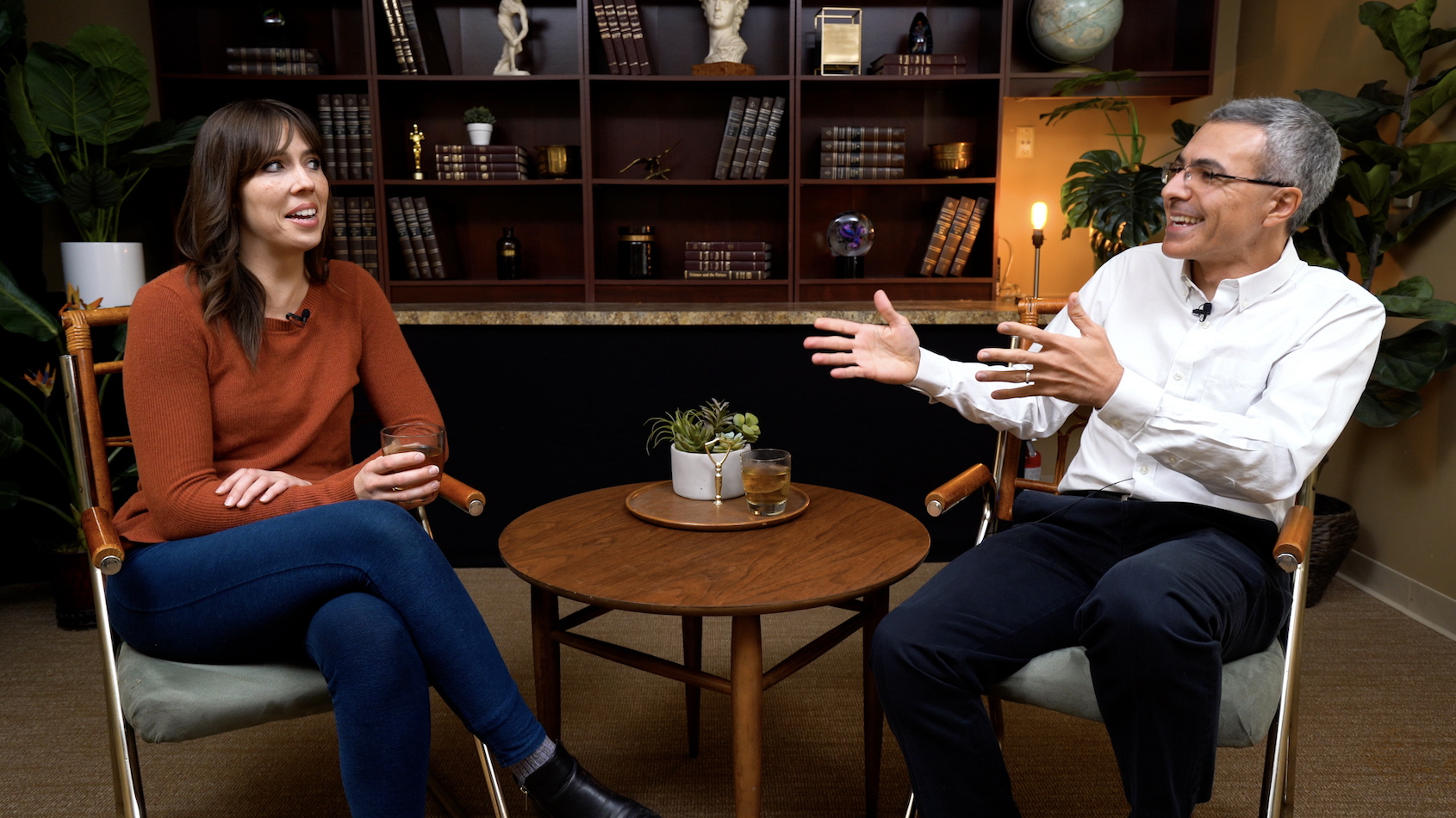
Meet your hosts:
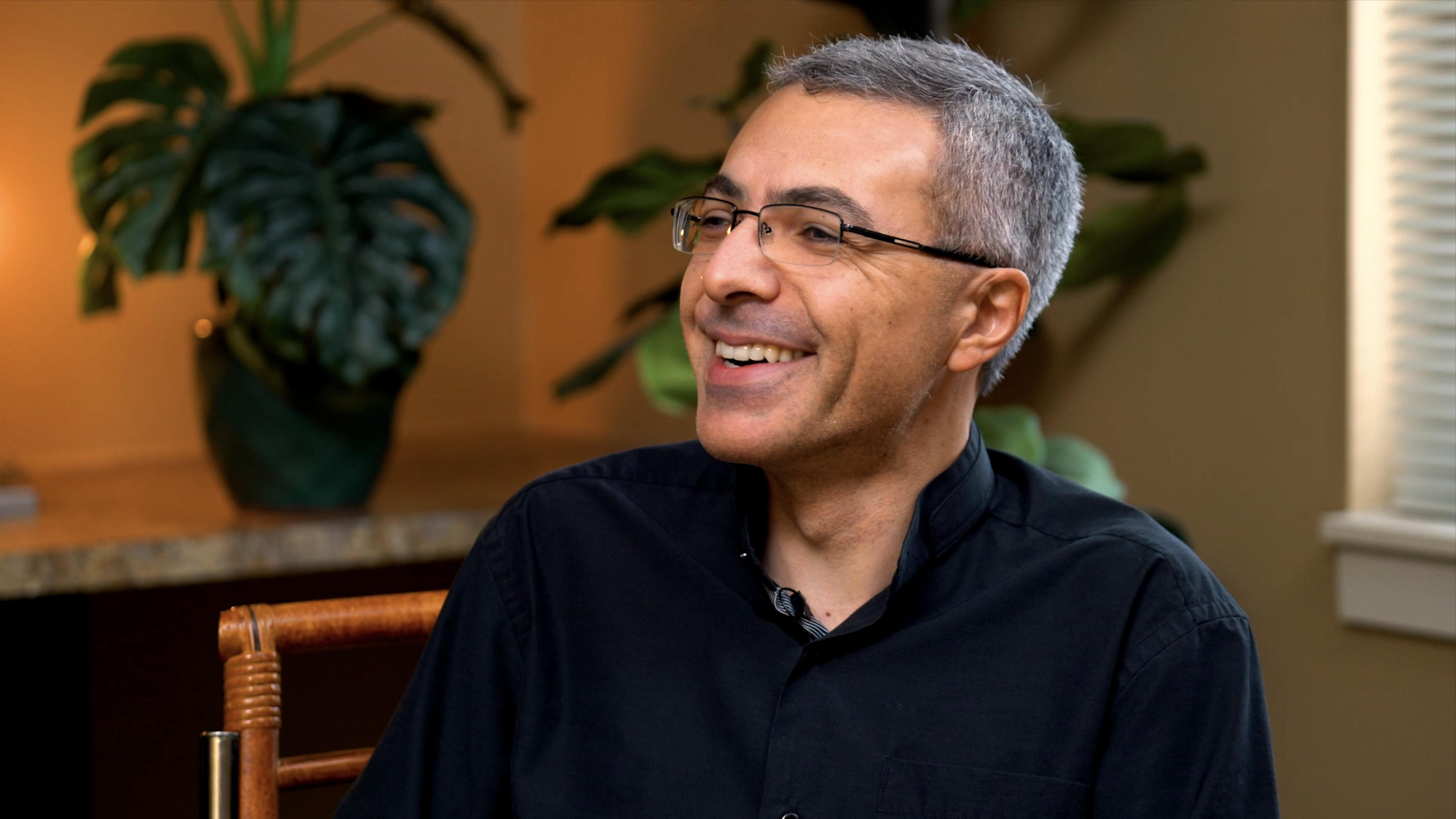
Dr. Elisha Yaghmai
Host
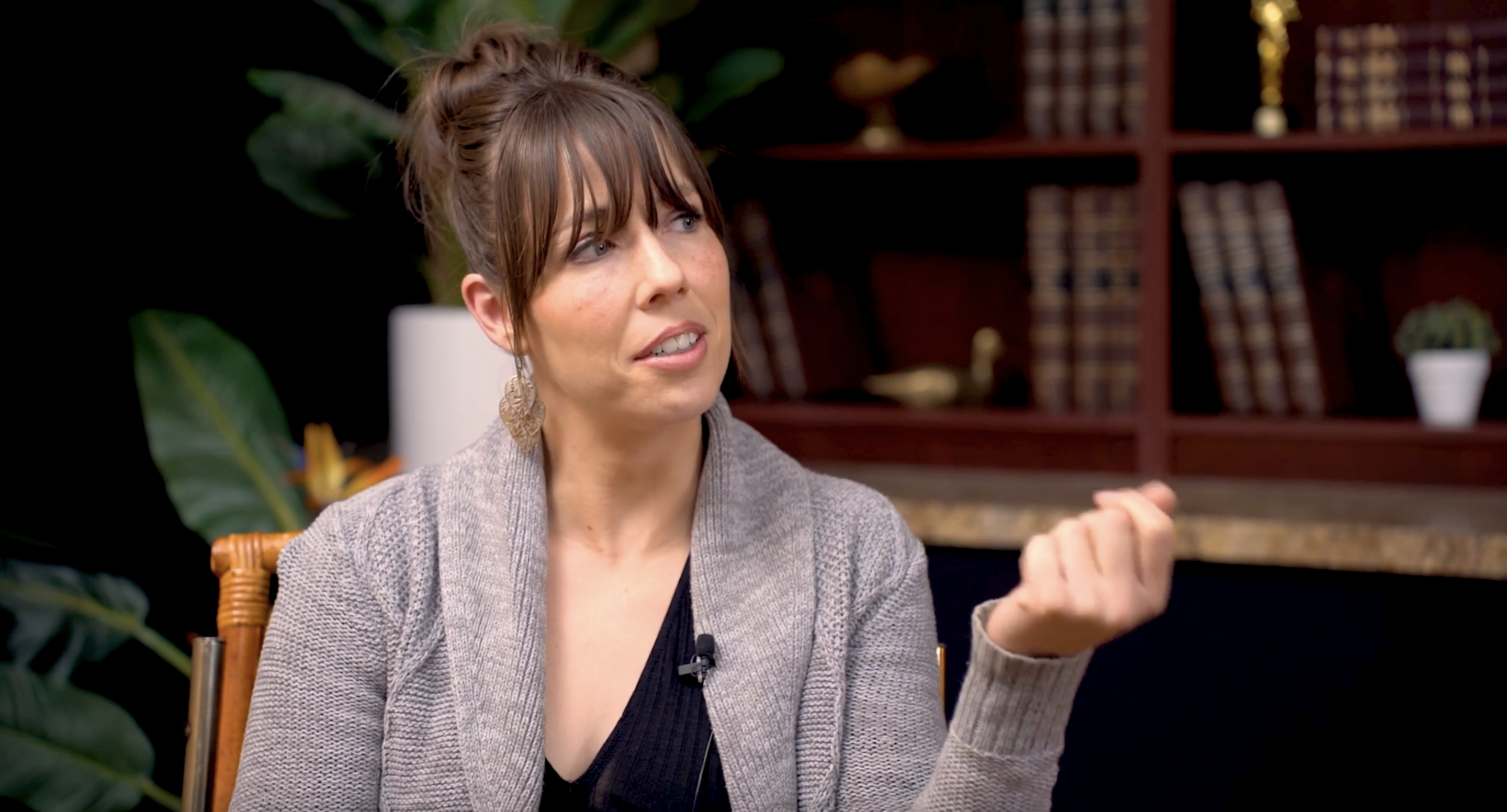
Jo O’Hanlon
Host





